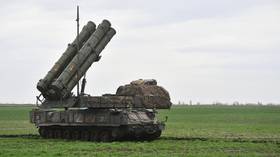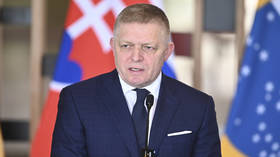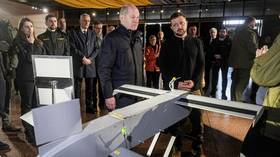EU says ‘yes’ to dialogue with Russia
The EU will restart talks on a new Partnership and Cooperation Agreement (PCA) with Russia. Foreign ministers meeting in Brussels agreed that it's in the objective interests of the bloc to continue dialogue with Moscow, though no date has been set.
The old PCA expired at the end of 2007. In June, at the Russia-EU summit at Khanty-Mansiysk it was agreed that talks would be resumed. The first round of talks was held on July 4 and the second was scheduled for September 16, but it was suspended due to the conflict in the Caucasus.
Speaking at a news conference, French Foreign Minister Bernard Kouchner, whose country currently holds the EU presidency said, “The dialogue must continue.”
However, he added that the EU still actively condemns Russia's actions in the Caucasus last August.
It was also revealed that one EU member state –Lithuania – had been opposed to the resumption of talks.
The European Commissioner, Benita Ferrero-Waldner, was quick to voice her accord with Kouchner. She said that the dialogue with Russia had merely been “postponed” rather than permanently suspended.
She added that developing the bi-lateral relationship will be difficult, but was unavoidable, as the EU and Russia are dependent on one another.
Ferrero-Waldner also highlighted the fact that that the investigation that began during the Geneva talks regarding Russia's involvement in the August conflict was still in full swing. She said having this investigation on one side and active co-operation from the other provides a “good balance” to the relationship.
It’s believed that the negotiations on a new strategic partnership agreement should be resumed at the EU-Russia summit in Nice on November 14.
Other items of concern during the press conference included the deteriorating humanitarian situation in the Congo, the problem of Somalian piracy and the status of Bosnia-Herzegovina in relation to the EU.
Ahead of the European summit, the British Foreign Secretary, David Miliband warned that resuming the talks with Moscow will not mean a return to “business as usual”.
Fyodor Lukyanov, the Editor-in-Chief of the 'Russia in Global Affairs' magazine, says there are certain reasons behind this tough rhetoric.
He says it’s difficult to reach a compromise between 27 member-states of the EU. Hundreds of interests have to be taken into account.
“I interpret this clause ‘no business as usual’ is a necessary political gesture to those countries which are not in favour of this process. They understand that they can’t block it but they need something to get in return for not blocking. It’s a special political environment which is called the European Union,” he said.
Related Links
New kids on the bloc better listen – EU
Time to build bridges with Poland
'Europe doesn't want confrontation with Russia' – Sarkozy












